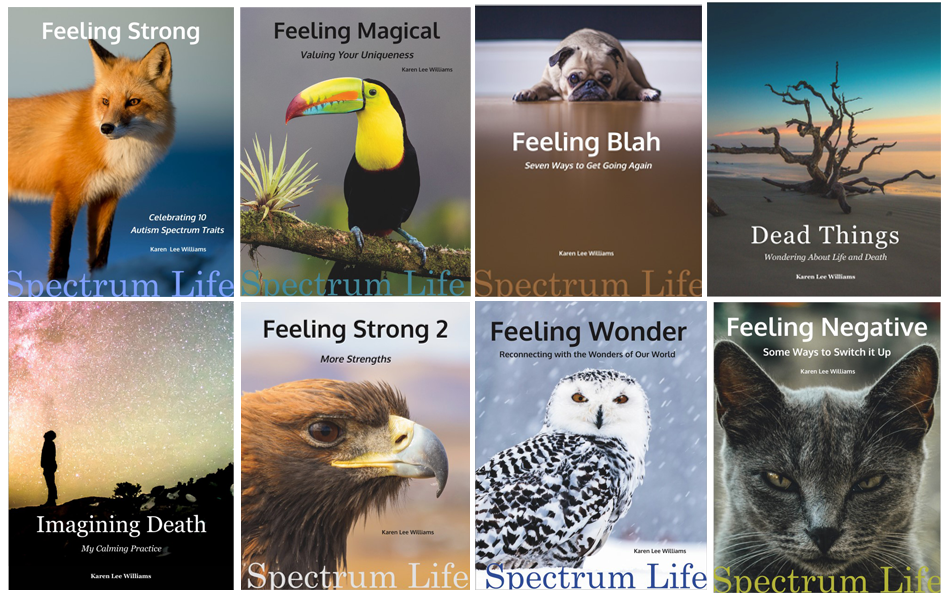First-time and self-published author Karen Williams receives ‘invaluable’ legal advice from Arts Law


Self-publishing a book, without the support from a publisher guiding the way, can be a daunting task! There are many legal issues to consider and despite best efforts navigating information there can be lots of (often conflicting) information around the legal ‘dos and don’ts’.
Karen Williams, a first-time author, approached Arts Law because not only did she want to ‘dot her i’s’ and ‘cross her t’s’ but it was important to her that she didn’t step on any toes along the way.
Karen, the mother of a son with Autism, has embarked on a journey to create easy-to-read and relevant books for people on the Autism spectrum or those who are part of the neurodiverse community. Her books are heartfelt, gentle and honest musings exploring difficult issues, including death and grief.
Karen writes the literary component for her books but for the accompanying images, she sources beautiful photographs from stock websites. Karen uses a print-on-demand service to manufacture her books and sought advice around the terms.
Stock websites, such as image or production music libraries, are a great source for artists to find material to incorporate into artworks. But it is important to understand the terms and conditions of any website before either paying for a copyright licence or incorporating royalty-free material into a new work. Here, Karen wanted to understand the legal issues around using photograph images sourced from stock websites. Arts Law’s solicitor, Roxanne Lorenz, provided Karen with legal advice around the legal issues concerning copyright and moral rights.
Copyright includes the right to reproduce and communicate a work. Moral rights are the rights around attribution and not making derogatory changes to works.
Karen wanted to make sure that her use of the images she sourced was respectful to the rights of the photographers. Material sourced from stock images can often come with complex terms and conditions that might limit how that material can be used. For example – do the terms state you are only allowed to use it for a limited time? Are you allowed to edit the work? And do you need to credit the original creator of the work? These questions all need to be considered.
Arts Law helped Karen by providing some initial preliminary legal advice around the key legal issues she needed to consider. Afterwards, Karen subscribed to Arts Law to access more in-depth advice through the ‘document review service’ where we reviewed both her book and the terms and conditions of a specific stock image website and provided her with advice.
Arts Law’s advice provided Karen with the confidence she needed to go ahead and self-publish her books. You can view Karen’s books and read more about her story on her website here.
About Arts Law’s assistance, Karen said:
“I finally self-published my books and I’d like to express my gratitude to Arts Law for helping me navigate the world of print on demand services and stock image websites while observing a respectful arts practice”.




